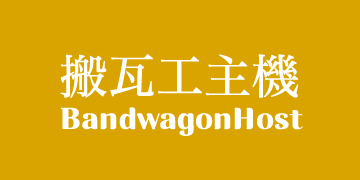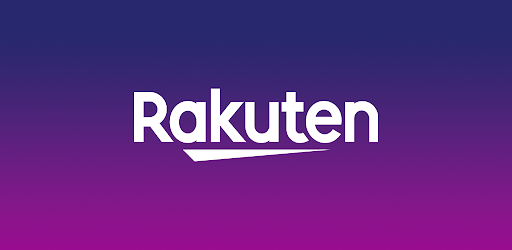Médecins Sans Frontières (MSF) brings essential healthcare to people who are victims of conflict, natural disasters, healthcare exclusion or epidemics.
We offer basic healthcare, perform surgery, fight epidemics, rehabilitate and run hospitals and clinics, carry out vaccination campaigns, operate nutrition centres, provide mental healthcare, and offer training to local medical staff. Our emergency teams are trained and equipped with everything they need to bring rapid assistance to people in crisis.
We also provide medical care and psychological support to people living in chronic emergency situations, such as people displaced by conflict or disaster. MSF programmes all over the world treat patients with infectious diseases such as tuberculosis, HIV/AIDS and kala azar.
When needed, we construct wells, supply safe drinking water, and distribute shelter materials and other relief items such as cooking and washing kits.
Opening a programme
MSF offers medical humanitarian assistance in countries where armed conflict, endemic or epidemic disease, social violence, healthcare exclusion or natural disaster are taking place.
The core purpose of humanitarian assistance is to save lives, alleviate suffering and help restore the dignity of individuals who find themselves in life-threatening circumstances.
MSF operations usually involve medical teams working in health centres, clinics or hospitals, addressing the most urgent medical needs of people in crisis. We can also supply safe drinking water or distribute shelter materials. We retain continuous and direct control over the management and delivery of our assistance.
We use our experience and judgement in deciding whether to offer assistance, and what kind. Medical teams conduct evaluations to determine medical needs before opening programmes. We analyse what assistance MSF can potentially bring, and we regularly question our own decisions about presence or absence.
Armed conflict
People caught up in armed conflict may be victims of harassment, violent attacks, rape or murder. They may be forcibly displaced from their homes. Health services can be scarce at a time when comprehensive medical and humanitarian support are most needed.
Our teams bring relief and medical services to people caught up in or displaced by conflict. When hospitals and health centres are destroyed or overwhelmed, MSF provides healthcare and support. Our activities often involve teams setting up operating theatres, clinics offering basic healthcare, public hygiene assistance, nutrition programmes, epidemic control and mental health services.
Natural disasters
People affected by a natural disaster require an immediate medical response. Many may be injured, and many more may have lost family, friends, their homes or belongings.
Needs must be quickly identified, but accessing a disaster area can be complex. MSF keeps pre-packaged kits in readiness, so that teams can offer rapid lifesaving assistance. They can provide surgery, psychosocial support, nutritional support, and relief items such as blankets, tents, and cooking and washing materials.
Our teams can also take preventive action where needed, ensuring safe water supplies, setting up sanitation systems, and conducting vaccinations campaigns to address the risk of epidemics.
Our assistance considers the importance of local efforts and strategies, and we collaborate extensively with national authorities and organisations. We are aware that international intervention in such crises has limitations in terms of time, quality and pertinence. The vast majority of staff working in MSF programmes are hired locally.
Endemic and epidemic disease
Epidemics can break out in a stable environment, but often develop in acute emergency situations, where a large number of people, weakened by circumstances, live in close proximity to each other and in poor sanitary conditions.
Outbreaks of cholera, measles and meningitis can spread rapidly, and are a particular risk where living conditions are poor. Malaria is endemic in more than 100 countries. Millions are living with HIV/AIDS and tuberculosis. Hundreds of thousands of people are infected with lesser-known but no less serious diseases such as kala azar, sleeping sickness and Chagas disease. And while viral haemorrhagic diseases such as Ebola or Marburg are rarer, they are, like all these illnesses, potentially fatal.
When local health centres and hospitals are stretched beyond capacity, MSF can bring support. Collaboration with local governments and authorities enables a more rapid response to urgent crises. We work in existing medical centres or set up new structures if needed, treating those affected by the disease and targeting the most vulnerable for prevention programmes.
For outbreaks of highly contagious diseases like measles and meningitis, where immunisation is the best form of protection, MSF will often conduct vaccination campaigns among the affected population as well as provide treatment.
Our teams also work to raise awareness about the risks of the disease and how to help prevent its spread. We offer training to local staff and conduct community health education programmes.
Through the Access Campaign and the Drugs for Neglected Diseases initiative, MSF pushes for better and more affordable treatments for diseases that disproportionately affect the world’s poor.
Social violence and healthcare exclusion
Street children, refugees, migrants, displaced people, prisoners, the unemployed, people with HIV/AIDS or tuberculosis, drug users, sex workers, minorities of all kinds ... Many people are unable to access healthcare simply because of who they are. They may fear stigma and be reluctant to seek help, or the healthcare system may deliberately exclude them.
MSF teams provide medical, psychological and social support to people cut off from health services. Our work also involves drawing attention to the obstacles our patients face in accessing healthcare. We push local authorities and civil society organisations to improve access to services and increase social acceptance.
Closing a programme
Médecins Sans Frontières (MSF) is committed to helping the most vulnerable people in times of extreme crisis. So any decision to withdraw from a medical project comes from the need to make choices about where our assistance is critically important. It is also crucial that a local or national health system does not become permanently dependent on MSF.
In many cases, we leave because local authorities or organisations are able to take over our activities, and we are no longer required. Where possible, we carry out a comprehensive handover process with national staff and authorities to avoid the interruption of activities.
Should a conflict resume or if a situation again reaches crisis point, and there is no guarantee that medical and humanitarian needs will be adequately addressed, we will be ready to return.
Stable or unsafe situations
When a violent situation has stabilised sufficiently, displaced populations are able to resettle safely and regular healthcare services resume, MSF will close its programme.
We may withdraw our teams for their own safety if a conflict situation deteriorates to the point of threat against MSF and other humanitarian staff. We may also leave if aid is being diverted away from the most vulnerable civilians.
If an authority or armed group deliberately obstructs our access to operations, we may speak out to try to reverse the situation.
Capacity and responsibility
When local or national authorities and organisations have the capacity and motivation to restore and develop a medical system that meets the urgent needs of the population, MSF will withdraw.
Likewise, if other organisations are providing medical support in the same place we will assess whether or not our presence risks a duplication of effort.
A decrease in acute needs
MSF will close a programme when a medical emergency ends: when a measles or meningitis epidemic is over, or when marginalised populations, such as prisoners and street children, are no longer excluded from healthcare. We will hand over when the most urgent needs of people struck by a natural disaster have been met, and attention must turn from relief operations to longer-term development activities.
THE END













暂无评论内容